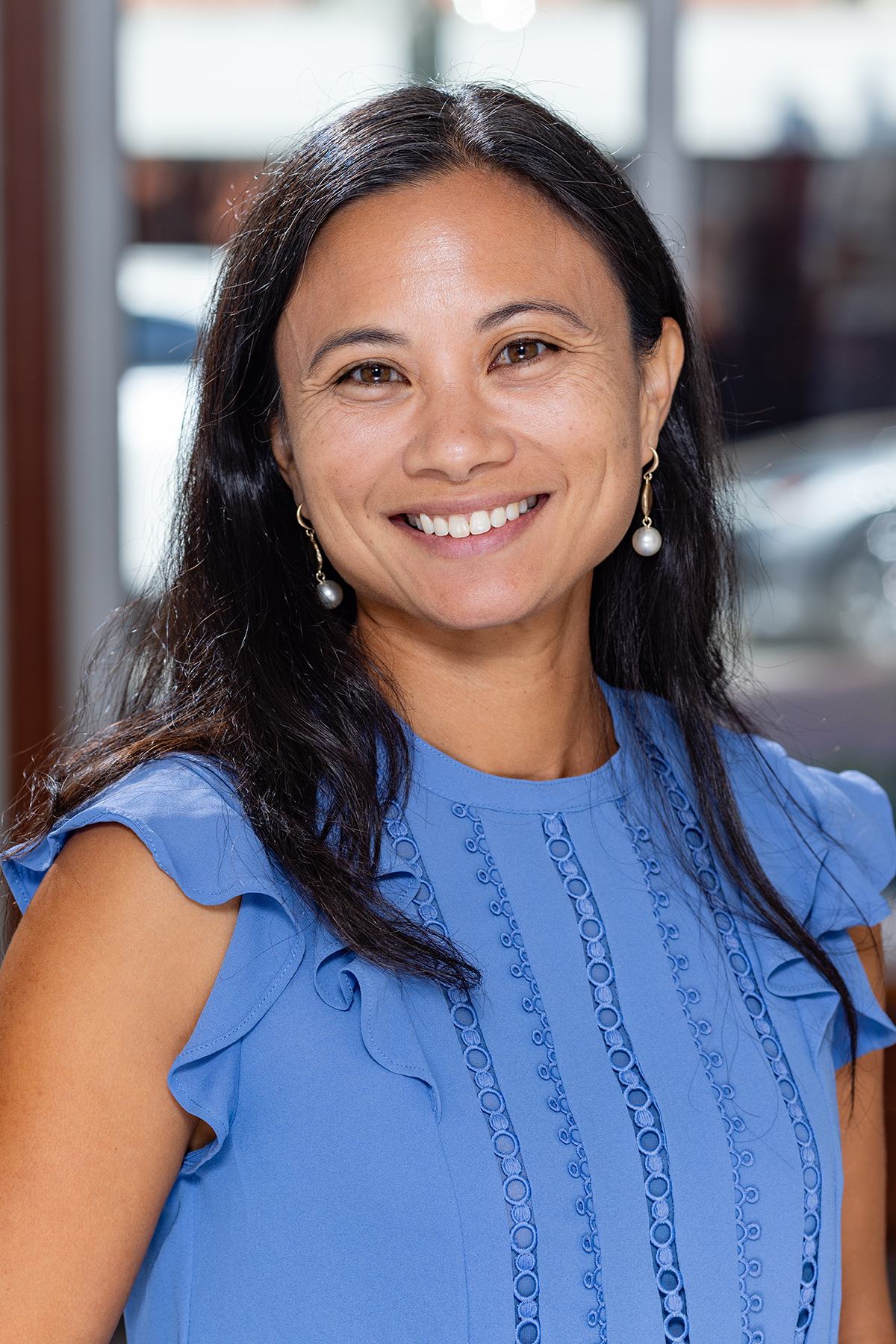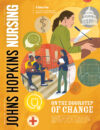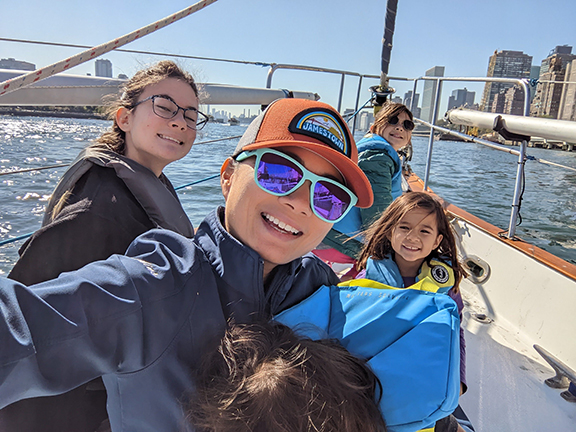When COVID blew life off course, Cristina Watkins decided to ride the breeze
Cristina Watkins, a student in the DNP Executive/MPH dual degree program at the Johns Hopkins School of Nursing, sailed last year with her husband and four young daughters from Rhode Island to Baltimore and on to Grenada aboard the Lady Rebel. All the while, she did DNP schoolwork and provided care and consultations via satellite link for Galileo, a company of physicians and nurse practitioners that pledges 24/7 access to care, wherever you are and, of course, wherever the provider happens to be.

“That is the benefit of telemedicine: You can do it from almost anywhere as long as you have stable internet access.” She reports that the connection has indeed been dependable, allowing her to work (mostly weekends). “It’s a lot of educating patients—quintessential primary care stuff: diabetes, hypertension, even musculoskeletal things like back pain.”
For the moment, though, Watkins happens to be on dry land in Rhode Island, one more Zoom call in a day full of them, talking about a family decision to head to sea and the magical experiences and hard lessons gained along the way: “Like running into a dock … rookie mistake.” There’s also no heat on the boat. Oh, and the clear impacts of global warming are unmistakable, even surrounded on all sides by an ocean.
“Living on a boat for a year, you really get good at water conservation, and you also realize how precious it is,” she explains. “I’ve become a lot more aware of climate change and water security, really feeling that this is our biggest public health challenge. And I’ve pivoted my Doctor of Nursing Practice project to that. … As with COVID, I think there’s this missing voice there—nurses—when it comes to policy development and analysis. It’s long overdue.”
That flexibility in carving out a DNP project that means so much to Watkins is part of what drew her to Johns Hopkins in the first place.
[Learn more about Doctoral Programs at the Johns Hopkins School of Nursing.]
Watkins’ career focus had long been prevention and treatment of strokes, a topic she remains fascinated with and hopes to keep a clinical hand in even as she expands her vision and continues to grow as a leader. At Rhode Island Hospital, Watkins began in pediatrics, bristled a bit at the administrative aspects of that job, and moved to a more clinical role with the vascular neurology service—the Stroke Team. “That was a very cool experience … with all the treatment advances that have happened with stroke. As with heart attacks, now we have similar devices [and improved diagnostic capacity] that we can go into blood vessels and take some of the blockages out of arteries in the brain.”
Such advances have significantly widened the time window for successful treatment, Watkins reports. “It was a really neat set-up where we got to sort of break through the silos in departments,” with Watkins up to her elbows in care all the way through. “I hung out in the emergency department, in intervention, and then the next day I might be taking care of that patient on the stroke floor. Really fast-paced, really fun type of work.”
But with four kids, she explains, 24-hour shifts and 12-hour shifts, “sometimes during the day, sometimes during night,” got her thinking about the long term. “I’d always wondered: We did all this great stuff once somebody had a stroke. But how do we prevent them in the first place from coming to us?”
That is the benefit of telemedicine: You can do it from almost anywhere as long as you have stable internet access.
Having majored in public health at the University of California-Berkeley, Watkins pondered a master of public health degree and happened upon the DNP-MPH program at Johns Hopkins during her search “and thought, ‘Oh! Might as well take my nursing degree to the end and then tack on the MPH too.’ So that’s when I started this whole journey with Hopkins.” And on her studies go.

Meanwhile, the sea calls, and will for as long as she and her family are onboard with it. Her four daughters, home-schooled aboard the Lady Rebel and at stops in between, can miss socializing with friends and will one day soon reach ages where they may well hear very different calls. They’ll handle it as a family, as they have all aspects of a journey that began as so many life-altering moments have during COVID-19. Husband Teal comes from a family of sailors—his parents met while sailing in the Caribbean in the 1970s—and “he had always had a bit of a romantic idea about sailing and thought a long trip would be cool one day,” she explains.
“We took the sailing course as a way to do something safe and outdoors during the height of COVID, and to see if this dream was at all possible. Good news is that we had enough fun in the classes together to buy our boat. After a season sailing around New England, we were ready for a bigger boat and seas.”
Now more than a year in, there are few regrets—boat damage, chilly days, and any rough seas notwithstanding—that might quell an eagerness to get back out there and keep learning and living. And nursing, whatever the tide brings. — Steve St. Angelo

